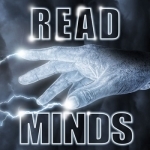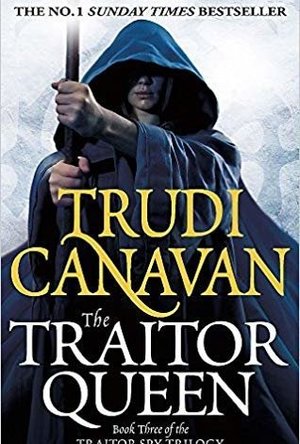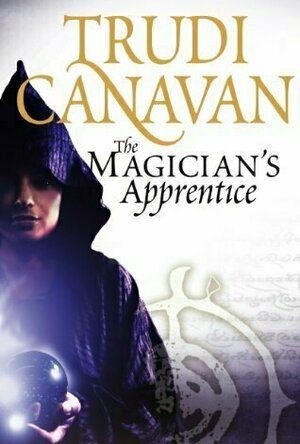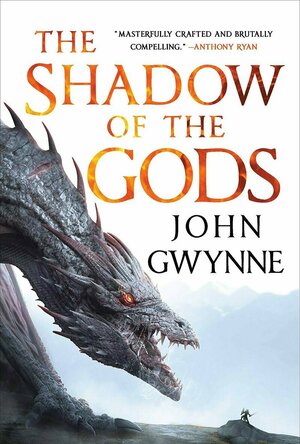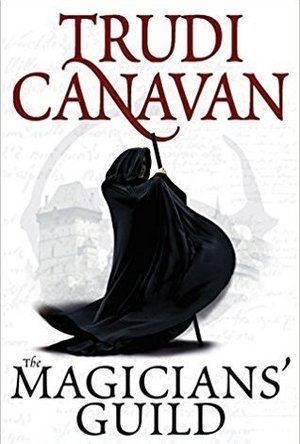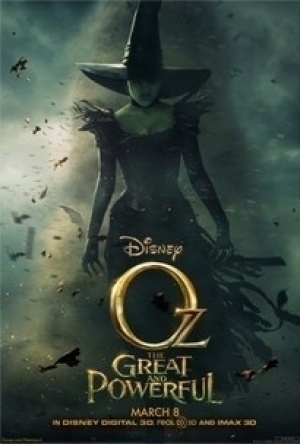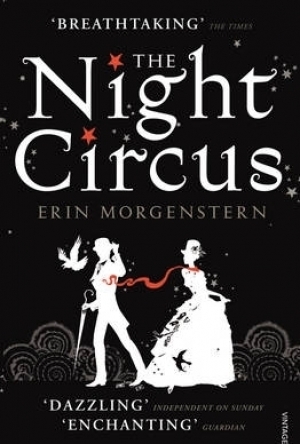Search
Hazel (1853 KP) rated A City Dreaming in Books
Dec 14, 2018
My rating: 2.5
<i>I received this book for free through Goodreads First Reads.</i>
“The city never sleeps, but it’s always dreaming.” And, by dreaming, Daniel Polansky clearly means nightmares. <i>A City Dreaming</i> is, for the lack of a better term, an urban fantasy novel. Embracing elements of dystopia and steampunk universes, it is difficult to determine the time period in which it is set. What can be established is that, wherever you are in the world, you are never far away from a monster.
<i>A City Dreaming</i> revolves around a semi-anonymous character known as M. M appears to be some form of magician who wishes he could spend his days listlessly staring into the bottom of his beer glass. Yet with misbehaving creatures and warring goddess living in the city of New York, peace is a rare phenomenon in M’s life. From demons to murders and mind-boggling situations, there is never a dull moment.
Each chapter of <i>A City Dreaming</i> is, in some way, an individual story. Apart from the occasional recurring character, no scenario is ever continued after the chapter concludes. This is initially a cause for confusion. With no clear direction or purpose, it is hard to remain engaged with the author’s imagination.
Readers familiar with contemporary fantasy writers, such as Neil Gaiman, may understand Polansky’s vision – think <i>Neverwhere</i> and <i>American Gods</i> combined, but weirder. M spends the majority of his time either inebriated or on drugs, and, to be frank, it would not be surprising to learn the author was on drugs at the time of writing. Imagine Neil Gaiman on drugs; that is how bizarre this book is.
Despite his penchant for recreational drugs, M is an intelligent character that can humorously talk himself out of impossible situations. However it is often a hopeless ordeal to fathom the process of his intoxicated mind. As a result, <i>A City Dreaming</i> loses its thrill and excitement.
As this is the first Daniel Polansky novel that I have read, I do not know whether this is his usual style of writing or whether it was an attempt at something new. What I did observe was the intelligence hidden behind the excess of expletives and lewd content. Polansky writes with certain aptitude, almost as if he has swallowed a thesaurus.
Fans of Neil Gaiman and Brandon Sanderson may enjoy <i>A City Dreaming</i> more than new readers, since they will already be familiar with the style of bemusing narration. <i>A City Dreaming</i> does not live up to the definition of a novel, however as short, connecting stories it provides the intended entertainment. Almost certainly, this book will be received with mixed reviews; nonetheless it will undoubtedly eventually find its fan base.
<i>I received this book for free through Goodreads First Reads.</i>
“The city never sleeps, but it’s always dreaming.” And, by dreaming, Daniel Polansky clearly means nightmares. <i>A City Dreaming</i> is, for the lack of a better term, an urban fantasy novel. Embracing elements of dystopia and steampunk universes, it is difficult to determine the time period in which it is set. What can be established is that, wherever you are in the world, you are never far away from a monster.
<i>A City Dreaming</i> revolves around a semi-anonymous character known as M. M appears to be some form of magician who wishes he could spend his days listlessly staring into the bottom of his beer glass. Yet with misbehaving creatures and warring goddess living in the city of New York, peace is a rare phenomenon in M’s life. From demons to murders and mind-boggling situations, there is never a dull moment.
Each chapter of <i>A City Dreaming</i> is, in some way, an individual story. Apart from the occasional recurring character, no scenario is ever continued after the chapter concludes. This is initially a cause for confusion. With no clear direction or purpose, it is hard to remain engaged with the author’s imagination.
Readers familiar with contemporary fantasy writers, such as Neil Gaiman, may understand Polansky’s vision – think <i>Neverwhere</i> and <i>American Gods</i> combined, but weirder. M spends the majority of his time either inebriated or on drugs, and, to be frank, it would not be surprising to learn the author was on drugs at the time of writing. Imagine Neil Gaiman on drugs; that is how bizarre this book is.
Despite his penchant for recreational drugs, M is an intelligent character that can humorously talk himself out of impossible situations. However it is often a hopeless ordeal to fathom the process of his intoxicated mind. As a result, <i>A City Dreaming</i> loses its thrill and excitement.
As this is the first Daniel Polansky novel that I have read, I do not know whether this is his usual style of writing or whether it was an attempt at something new. What I did observe was the intelligence hidden behind the excess of expletives and lewd content. Polansky writes with certain aptitude, almost as if he has swallowed a thesaurus.
Fans of Neil Gaiman and Brandon Sanderson may enjoy <i>A City Dreaming</i> more than new readers, since they will already be familiar with the style of bemusing narration. <i>A City Dreaming</i> does not live up to the definition of a novel, however as short, connecting stories it provides the intended entertainment. Almost certainly, this book will be received with mixed reviews; nonetheless it will undoubtedly eventually find its fan base.
Marylegs (44 KP) rated The Traitor Queen (Traitor Spy Trilogy, #3) in Books
Aug 14, 2019
The Traitor Queen gripped me straight away, I did have a couple of pages where I was slightly confused but that was more to do with it having been a very long time between me reading this book and the previous books. However it didnt take long for it all to come back, and for me to remember what was happening, who was who and what I thought was going to happen. Throughout the book I felt so connected to all the characters, even those I hadnt previously liked.
As this is the last part of a sequel trilogy there were a number of characters to follow. Obviously Black Magician Sonea, who was the main character in the previous trilogy still has an important role and is travelling to Sachaka for diplomatic purposes, accompanied by Lord Regin. Lord Regin and Soneas relationship had developed greatly over the six books and I have to say I liked where his story lead to, from being a horrible, manipulative, spoilt character to a dignified, understanding and very likeable character. There is also Lord Lorkin, Sonea son, who has returned to the Sachakan capital after living a number of months with the Traitors, the outlaw band of black magicians that live in the mountains of Sachaka. He has had to leave Tyvara, the woman he has fallen in love with and doesnt know if he will see her again. He knows at some point he will have to choose between her and the traitors and his home in the allied lands. Also back home is Lilia, Anyi, Cery and Gol who are undertaking in a completed different story line that is equally dramatic and important to the development of allied lands. All the characters storylines climax in devastating amazing ways.
As this was the end of long series if you include both trilogies I have been able to see full character developments, share their losses, see how that has changed them. This has been a brilliant series and one I have enjoyed immensely. I will say I think over all I preferred the first trilogy more, but only because I felt it was more raw and emotional. This trilogy, using the same character base, I found that I connected most with the characters I already knew and never truly warmed to new additions. However it was nice to be able to see these characters I knew grow up and change. Would highly recommend, if you enjoyed other YA books like Harry Potter, Hunger Games, Tales of the Otori etc; I would imagine you would love the original series and this one.
As this is the last part of a sequel trilogy there were a number of characters to follow. Obviously Black Magician Sonea, who was the main character in the previous trilogy still has an important role and is travelling to Sachaka for diplomatic purposes, accompanied by Lord Regin. Lord Regin and Soneas relationship had developed greatly over the six books and I have to say I liked where his story lead to, from being a horrible, manipulative, spoilt character to a dignified, understanding and very likeable character. There is also Lord Lorkin, Sonea son, who has returned to the Sachakan capital after living a number of months with the Traitors, the outlaw band of black magicians that live in the mountains of Sachaka. He has had to leave Tyvara, the woman he has fallen in love with and doesnt know if he will see her again. He knows at some point he will have to choose between her and the traitors and his home in the allied lands. Also back home is Lilia, Anyi, Cery and Gol who are undertaking in a completed different story line that is equally dramatic and important to the development of allied lands. All the characters storylines climax in devastating amazing ways.
As this was the end of long series if you include both trilogies I have been able to see full character developments, share their losses, see how that has changed them. This has been a brilliant series and one I have enjoyed immensely. I will say I think over all I preferred the first trilogy more, but only because I felt it was more raw and emotional. This trilogy, using the same character base, I found that I connected most with the characters I already knew and never truly warmed to new additions. However it was nice to be able to see these characters I knew grow up and change. Would highly recommend, if you enjoyed other YA books like Harry Potter, Hunger Games, Tales of the Otori etc; I would imagine you would love the original series and this one.
Tom Turner (388 KP) rated The Magician's Apprentice (Black Magician, #0.5) in Books
Apr 30, 2021
I would like to say I loved this book, but there is part of me resisting that solely because I didn't feel satisfied by its ending. It felt to me that it wasn't tied up properly. It kind of felt there should have been a couple more pages. I also thought that seeing as Tessia is the title and main character of the book that it was a shame the final scene (though mentioning her) doesn't feature her.
I have picked up copies of Trudi Canavan's books in shops a number of times over the years, but I never bought one because I didn't want to invest in a trilogy if I wasn't completely "with it". So when I realised that this book was a stand-alone novel, but was set in the world (albeit a few hundred years before!) some of her other books I jumped at the chance of reading it.
From my first paragraph you'll probably think I ended up disappointed, but you'd be wrong. Until the very end I really really enjoyed this. The characters were well formed and it was lovely to have a story of war where you see both sides of said war, and the juxtaposition of Stara and Tessia's stories was intriguing but perhaps not played to its full potential. The two different cultures were very well constructed, and by having the Stara strand meant you never fully demonised the Sachakans, making them a more fully constructed culture - one that is eerily familiar.
My mind keeps wondering while I felt disappointed, and I guess I felt I needed more, and maybe this is because Canavan is more used to writing trilogies, maybe this is what is needed, I'd love to read a story of Tessia and Jayan as they built the Guild with the others. I feel there could be a whole book in that alone. It would have been nice to have at least got a glimpse of it. Given that it is a central part of the Black Magician trilogy I feel that could have been nice. Maybe all these niggles I'm feeling will be sorted when I read said trilogy, and I certainly will do, and maybe I'd have felt more satisfied if I'd read this in publication order. Who knows I may come back one day and re- review this book after re-reading it following reading the other six book set in this world.
I'm glad to have read this book, and I am excited to read more Trudi Canavan. I guess me saying that when I don't have the butterflies in the stomach I get at the end of reading a book is something in itself.
I have picked up copies of Trudi Canavan's books in shops a number of times over the years, but I never bought one because I didn't want to invest in a trilogy if I wasn't completely "with it". So when I realised that this book was a stand-alone novel, but was set in the world (albeit a few hundred years before!) some of her other books I jumped at the chance of reading it.
From my first paragraph you'll probably think I ended up disappointed, but you'd be wrong. Until the very end I really really enjoyed this. The characters were well formed and it was lovely to have a story of war where you see both sides of said war, and the juxtaposition of Stara and Tessia's stories was intriguing but perhaps not played to its full potential. The two different cultures were very well constructed, and by having the Stara strand meant you never fully demonised the Sachakans, making them a more fully constructed culture - one that is eerily familiar.
My mind keeps wondering while I felt disappointed, and I guess I felt I needed more, and maybe this is because Canavan is more used to writing trilogies, maybe this is what is needed, I'd love to read a story of Tessia and Jayan as they built the Guild with the others. I feel there could be a whole book in that alone. It would have been nice to have at least got a glimpse of it. Given that it is a central part of the Black Magician trilogy I feel that could have been nice. Maybe all these niggles I'm feeling will be sorted when I read said trilogy, and I certainly will do, and maybe I'd have felt more satisfied if I'd read this in publication order. Who knows I may come back one day and re- review this book after re-reading it following reading the other six book set in this world.
I'm glad to have read this book, and I am excited to read more Trudi Canavan. I guess me saying that when I don't have the butterflies in the stomach I get at the end of reading a book is something in itself.
Ross (3284 KP) rated The Shadow of the Gods in Books
Jun 2, 2021
Superb nordic fantasy
Shadow of the Gods is the first book in a new series from Gwynne, and his first away from the world of the Faithful and the Fallen. It takes place in a viking-esque part of a world whose gods have recently died, and the world is gradually emerging from tribalism and remote settlements into wider government, at great pain to its people.
There are rumours of rare people who are descendants of the gods and under stress (or on command once they are trained) can enhance their physical abilities - strength, speed, fury etc.
We meet three characters:
- Orka, a woman with a mysterious past who just wants a quiet simple life with her husband and son, away from the ambitions of their countrymen
- Elvar, a young bountyhunter woman who, along with her fellow longboatmen are initially hunting one of the alleged gods' descendants
- Varg, a young man who has recently escaped slavery in unpleasant circumstances and wants to find what happened to his sister, seeking a magician to tell him her last moments
The three PoVs give us an excellent view of this world, and we see the beginning conflict from numerous standpoints. Varg, far from being a vehicle to deliver worldbuilding, is an excellently formed character who is trained in combat with spear and shield (and of course, Gwynne's trademark shield wall obsession).
The different PoVs also allow us to see one overall story developing, but building up from numerous subplots and quests.
The action scenes are excellent and plenty, as usual, both single combat trials and larger battle scenes against people and monsters. Where the Faithful and the Fallen had the "sword flicks sand in the eye" trope, which was overused, here we have the axe being used to hook someone's shield and yeet them out of the shield wall. This is less overused, and I believe a genuine effective battle tactic, but one that the reader notices regularly.
The mysteries of the world and the characters inhabiting it are revealed gradually enough to keep even this impatient reader satisfied. I admit to overthinking it and trying to guess how the stories might overlap/weave together and got it all completely wrong. There were times when I did mix up the quests of Varg and his boat crew, and Elvar and her boat crew, as they are very similar, but this is natural when such a large cast of characters is introduced.
An excellent thrilling adventure and one that effortlessly got me out of something of a reading slump (everything has felt like a chore for so long, but this was a delight every time I sat down to read).
I received a free copy from the publishers and netgalley in exchange for an honest review.
There are rumours of rare people who are descendants of the gods and under stress (or on command once they are trained) can enhance their physical abilities - strength, speed, fury etc.
We meet three characters:
- Orka, a woman with a mysterious past who just wants a quiet simple life with her husband and son, away from the ambitions of their countrymen
- Elvar, a young bountyhunter woman who, along with her fellow longboatmen are initially hunting one of the alleged gods' descendants
- Varg, a young man who has recently escaped slavery in unpleasant circumstances and wants to find what happened to his sister, seeking a magician to tell him her last moments
The three PoVs give us an excellent view of this world, and we see the beginning conflict from numerous standpoints. Varg, far from being a vehicle to deliver worldbuilding, is an excellently formed character who is trained in combat with spear and shield (and of course, Gwynne's trademark shield wall obsession).
The different PoVs also allow us to see one overall story developing, but building up from numerous subplots and quests.
The action scenes are excellent and plenty, as usual, both single combat trials and larger battle scenes against people and monsters. Where the Faithful and the Fallen had the "sword flicks sand in the eye" trope, which was overused, here we have the axe being used to hook someone's shield and yeet them out of the shield wall. This is less overused, and I believe a genuine effective battle tactic, but one that the reader notices regularly.
The mysteries of the world and the characters inhabiting it are revealed gradually enough to keep even this impatient reader satisfied. I admit to overthinking it and trying to guess how the stories might overlap/weave together and got it all completely wrong. There were times when I did mix up the quests of Varg and his boat crew, and Elvar and her boat crew, as they are very similar, but this is natural when such a large cast of characters is introduced.
An excellent thrilling adventure and one that effortlessly got me out of something of a reading slump (everything has felt like a chore for so long, but this was a delight every time I sat down to read).
I received a free copy from the publishers and netgalley in exchange for an honest review.
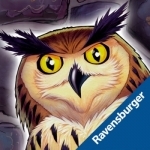
Whoowasit? - Children's game of the year 2008
Games and Entertainment
App
Whoowasit? has been nominated in the categories „Bestes Kinderspiel“ (best game for kids) and...
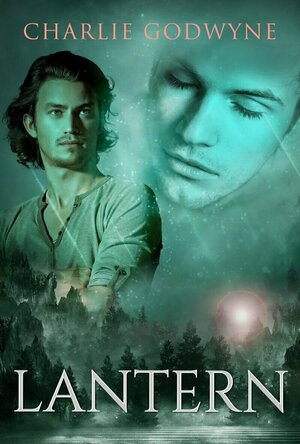
Lantern (Danubian #1)
Book
In the black night, I alone uphold the shrine of the seven lantern gods. The year is 2448....
MM Paranormal Romance
Phil Leader (619 KP) rated The Magicians' Guild (Black Magician Trilogy, #1) in Books
Nov 20, 2019
Trudi Canavan has been on my 'to read' list for a long time (far too long really). I finally found the time to read The Magicians' Guild - book one of the Black Magician trilogy.
The story revolves around Sonea, a girl living amongst the poor and near-poor of Imardin. The city is home to the titular guild, where the greatest magicians in the world learn and teach.
Those showing magical talent only come from the ruling classes. But Sonea has magical talent so the guild need to either break tradition and train her or block her powers as unless she is trained they will unleash themselves and kill her. The problem is that Sonea (along with the rest of the less privileged city dwellers) distrusts and fears the guild.
The book is in two parts - the first involves Sonea hiding from the guild and their attempts to find her. This is quite a clever strategy from a story telling point of view since the world and characters can be gradually introduced. We meet Sonea and her friends, and also the Thieves that control the slums. On the magicians' side we find some are sympathetic towards Sonea while others are outraged at the thought of training a slum girl - some for more personal reasons than others.
The second half involves Sonea's initial training at the guild. I do try not to give away major plot direction in these reviews, but I don't think it's much of a spoiler that she does end up in the guild, given the name of the book. In this part we find out more about magic and the guild, plus the plot that forms the core of this book moves forward and is resolved in a satisfactory - and dramatic - style.
Canavan's writing is focused firmly on character, although the world around them is fully realised, with the slums suitably dingy and grubby and the guild grand and opulent. The characters are allowed to develop through the pages. I found the start a little slow going, but I think that was mostly because the previous book I read was for more action based. There is also very little dramatic tension about Sonea ending up in the guild, but I don't think that is the purpose of the first half of the book anyway.
This story is clearly there to set up the characters for the trilogy as a whole - and as the plot progresses Sonea discovers some things that are clearly going to be important in her future. The way the ending is left is therefore very finely balanced between the resolution of the main plot and leaving the threads for the next book, and Canavan is spot on in delivering this.
Overall I really liked this book and will read the other installments as time allows without hesitation. If you are looking for some brutal anti-hero cutting a swathe of destruction through his enemies this is not the book for you. If you want some careful characterisation and a personality driven and human-scale plot, pick up this book. It is also refreshing to have a female main protagonist in the traditionally macho world of fantasy. Recommended.
The story revolves around Sonea, a girl living amongst the poor and near-poor of Imardin. The city is home to the titular guild, where the greatest magicians in the world learn and teach.
Those showing magical talent only come from the ruling classes. But Sonea has magical talent so the guild need to either break tradition and train her or block her powers as unless she is trained they will unleash themselves and kill her. The problem is that Sonea (along with the rest of the less privileged city dwellers) distrusts and fears the guild.
The book is in two parts - the first involves Sonea hiding from the guild and their attempts to find her. This is quite a clever strategy from a story telling point of view since the world and characters can be gradually introduced. We meet Sonea and her friends, and also the Thieves that control the slums. On the magicians' side we find some are sympathetic towards Sonea while others are outraged at the thought of training a slum girl - some for more personal reasons than others.
The second half involves Sonea's initial training at the guild. I do try not to give away major plot direction in these reviews, but I don't think it's much of a spoiler that she does end up in the guild, given the name of the book. In this part we find out more about magic and the guild, plus the plot that forms the core of this book moves forward and is resolved in a satisfactory - and dramatic - style.
Canavan's writing is focused firmly on character, although the world around them is fully realised, with the slums suitably dingy and grubby and the guild grand and opulent. The characters are allowed to develop through the pages. I found the start a little slow going, but I think that was mostly because the previous book I read was for more action based. There is also very little dramatic tension about Sonea ending up in the guild, but I don't think that is the purpose of the first half of the book anyway.
This story is clearly there to set up the characters for the trilogy as a whole - and as the plot progresses Sonea discovers some things that are clearly going to be important in her future. The way the ending is left is therefore very finely balanced between the resolution of the main plot and leaving the threads for the next book, and Canavan is spot on in delivering this.
Overall I really liked this book and will read the other installments as time allows without hesitation. If you are looking for some brutal anti-hero cutting a swathe of destruction through his enemies this is not the book for you. If you want some careful characterisation and a personality driven and human-scale plot, pick up this book. It is also refreshing to have a female main protagonist in the traditionally macho world of fantasy. Recommended.
Gareth von Kallenbach (980 KP) rated Oz the Great and Powerful (2013) in Movies
Aug 7, 2019
Taking on a movie as beloved as “The Wizard of Oz” is a daunting task. The iconic Judy Garland film is considered a classic and many of the songs from the film have remained part of our culture since it was released in 1939. Despite several book sequels, the attempts to continue the series have had little success as there have been animated films as well as an urban remake, “The Wiz”, which also failed to reach the success of the original. Director Sam Raimi opted to do an original prequel story that tells of how the fabled Wizard of Oz came to be.
Oz (James Franco), is a small-time magician toiling away in small circus in Kansas in 1905. Life on the road has allowed him to be a womanizer and an egomaniac who dreams of greatness. When his actions catch up with him, Oz is forced to flee and takes refuge from an angry mob in a hot air balloon. An unexpected storm funnel grabs the balloon, and whisks Oz to a dazzling and colorful world filled with all manner of strange creatures and wonders.
Upon his arrival, Oz is greeted by Theodora (Mila Kunis), who believes that Oz is the great wizard that legend has said will arrive to save the land and rule the people in a kind and just way. It is revealed that the land is under siege from a wicked witch, and a prophecy indicates a great wizard will arrive with the same name as the land, and will save the day.
Naturally Oz does not believe this but is more than willing to charm Theodora and her sister Evanora (Rachel Weisz), and plot to get his hands on the abundant gold that will come with his appointment as the great wizard. Oz learns that in order to take the throne, he has to defeat another witch (Michelle Williams), and sets off on a journey to the Dark Forest with his flying monkey companion Finley (Zach Braff). Along the journey, Oz learns first hand of the horrors the witch has unleashed on the unsuspecting and learns that his selfish behavior has serious consequences not just for himself, but for innocent people as well. This leads to some serious soul-searching and a confrontation that will force Oz to become the man that many believe he is, less they all perish.
The film has some great visuals as Raimi wisely shot the movie in 3D and mixed CGI with some very impressive sets. It is clear that much of the film is shot against a CGI backdrop but the visual wonder of the film is something to behold. The biggest issues I had with the film were that it was slow-paced and did drag in several parts. Franco does his best to play up the seedier side of Oz, but makes some very odd facial expressions throughout the film that seem very forced and out of place for the film and the situations he finds himself in. Kunis and Weisz make excellent witches and their backstory is a very interesting and an integral part of Dorothy’s adventures in the original film. Williams does well with her role but never seems to develop the needed chemistry with Franco. I was also surprised that the film was very light on musical numbers as there was only a hint of one that was quickly halted by Franco. “Oz: The Great and Powerful” is a visually enjoyable film that sets the stage well for the original film and Raimi is to be praised for taking on such sacred material and providing a new chapter for the modern generation. While it is not likely to be considered a classic like the original film, it is still a worthy chapter in the series which will provide good nostalgic entertainment for fans new and old alike.
Oz (James Franco), is a small-time magician toiling away in small circus in Kansas in 1905. Life on the road has allowed him to be a womanizer and an egomaniac who dreams of greatness. When his actions catch up with him, Oz is forced to flee and takes refuge from an angry mob in a hot air balloon. An unexpected storm funnel grabs the balloon, and whisks Oz to a dazzling and colorful world filled with all manner of strange creatures and wonders.
Upon his arrival, Oz is greeted by Theodora (Mila Kunis), who believes that Oz is the great wizard that legend has said will arrive to save the land and rule the people in a kind and just way. It is revealed that the land is under siege from a wicked witch, and a prophecy indicates a great wizard will arrive with the same name as the land, and will save the day.
Naturally Oz does not believe this but is more than willing to charm Theodora and her sister Evanora (Rachel Weisz), and plot to get his hands on the abundant gold that will come with his appointment as the great wizard. Oz learns that in order to take the throne, he has to defeat another witch (Michelle Williams), and sets off on a journey to the Dark Forest with his flying monkey companion Finley (Zach Braff). Along the journey, Oz learns first hand of the horrors the witch has unleashed on the unsuspecting and learns that his selfish behavior has serious consequences not just for himself, but for innocent people as well. This leads to some serious soul-searching and a confrontation that will force Oz to become the man that many believe he is, less they all perish.
The film has some great visuals as Raimi wisely shot the movie in 3D and mixed CGI with some very impressive sets. It is clear that much of the film is shot against a CGI backdrop but the visual wonder of the film is something to behold. The biggest issues I had with the film were that it was slow-paced and did drag in several parts. Franco does his best to play up the seedier side of Oz, but makes some very odd facial expressions throughout the film that seem very forced and out of place for the film and the situations he finds himself in. Kunis and Weisz make excellent witches and their backstory is a very interesting and an integral part of Dorothy’s adventures in the original film. Williams does well with her role but never seems to develop the needed chemistry with Franco. I was also surprised that the film was very light on musical numbers as there was only a hint of one that was quickly halted by Franco. “Oz: The Great and Powerful” is a visually enjoyable film that sets the stage well for the original film and Raimi is to be praised for taking on such sacred material and providing a new chapter for the modern generation. While it is not likely to be considered a classic like the original film, it is still a worthy chapter in the series which will provide good nostalgic entertainment for fans new and old alike.
Ivana A. | Diary of Difference (1171 KP) rated The Night Circus in Books
Oct 2, 2020
<a href="https://amzn.to/2Wi7amb">Wishlist</a>; | <a
<a href="https://diaryofdifference.com/">Blog</a>; | <a href="https://www.facebook.com/diaryofdifference/">Facebook</a>; | <a href="https://twitter.com/DiaryDifference">Twitter</a>; | <a href="https://www.instagram.com/diaryofdifference/">Instagram</a>; | <a
<a href="https://ko-fi.com/diaryofdifference">Ko-fi</a>;
<img src="https://diaryofdifference.com/wp-content/uploads/2020/09/Book-Review-Banner-81.png"/>;
I don’t even know how to start my book review for The Night Circus by Erin Morgenstern. It was too magical, that I feel like everything I write will not do this book justice. To me, it felt like I was a part of one big secret. And in this book, Widget has something to say about secrets:
<b><i>“Secrets have power," Widget begins. "And that power diminishes when they are shared, so they are best kept and kept well. Sharing secrets, real secrets, important ones, with even one other person, will change them. Writing them down is worse, because who can tell how many eyes might see them inscribed on paper, no matter how careful you might be with it. So it’s really best to keep your secrets when you have them, for their own good, as well as yours.”</i></b>
Therefore, I feel like everything I might say will make this magical book a little less magical than it already is. I feel like this is an experience that you need to read for yourself, get acquainted with this Circus, with its characters, and feel like a part of it.
Two people, brought up in different circumstances, have been getting ready for the challenge all their lives. They can’t avoid it, they are bonded to it. Their task is to be better than the other person, be a better magician, be a better illusionist. Their destiny is magical and dangerous, and the circus is their arena.
<b><i>“You need to understand your limitations so you can overcome them.”</i></b>
The circus is a beautiful place.It is magical. It is everything you’ve ever wanted as a kid. The lights, the music, the mystery, the performers… Everything that happens in the circus has its own story. Many characters involved and their own adventures mix, get tangled and interfere with the two competitor’s destiny. I loved the descriptions of the different tents, the ice garden, the labyrinth, the cloud maze, the tent with the bottles...
<b><i>“People see what they wish to see. And in most cases, what they are told that they see.”</i></b>
The writing in The Night Circus is beautiful. It is slow-paced and very imaginative. Slowly, it takes you to a place where people perform illusions, read tarot and foresee the destiny, tell stories, build magical clocks. If you’ve ever been to a circus, you will feel like you are there again. If you haven’t experienced that before, this book will give you the best possible introduction. A story of magic, love, destiny and storytelling like you’ve never seen before and you’re unlikely to see soon. It’s no wonder this book receives such hype.
<b><i>"A dreamer is one who can only find his way by moonlight, and his punishment is that he sees the dawn before the rest of the world."
- Oscar Wilde, 1888</i></b>
The Night Circus is a favourite. The ultimate favorite. Today, tomorrow, and probably until the rest of my life. For all the characters inside it that mattered. For the happy ever afters. But most importantly, for the storytellers. For my grandma, for Widget and for Erin. And for the other storytellers like them - because without them, we wouldn’t be able to truly find magic.
<a href="https://diaryofdifference.com/">Blog</a>; | <a href="https://www.facebook.com/diaryofdifference/">Facebook</a>; | <a href="https://twitter.com/DiaryDifference">Twitter</a>; | <a href="https://www.instagram.com/diaryofdifference/">Instagram</a>; | <a
<a href="https://ko-fi.com/diaryofdifference">Ko-fi</a>;
<img src="https://diaryofdifference.com/wp-content/uploads/2020/09/Book-Review-Banner-81.png"/>;
I don’t even know how to start my book review for The Night Circus by Erin Morgenstern. It was too magical, that I feel like everything I write will not do this book justice. To me, it felt like I was a part of one big secret. And in this book, Widget has something to say about secrets:
<b><i>“Secrets have power," Widget begins. "And that power diminishes when they are shared, so they are best kept and kept well. Sharing secrets, real secrets, important ones, with even one other person, will change them. Writing them down is worse, because who can tell how many eyes might see them inscribed on paper, no matter how careful you might be with it. So it’s really best to keep your secrets when you have them, for their own good, as well as yours.”</i></b>
Therefore, I feel like everything I might say will make this magical book a little less magical than it already is. I feel like this is an experience that you need to read for yourself, get acquainted with this Circus, with its characters, and feel like a part of it.
Two people, brought up in different circumstances, have been getting ready for the challenge all their lives. They can’t avoid it, they are bonded to it. Their task is to be better than the other person, be a better magician, be a better illusionist. Their destiny is magical and dangerous, and the circus is their arena.
<b><i>“You need to understand your limitations so you can overcome them.”</i></b>
The circus is a beautiful place.It is magical. It is everything you’ve ever wanted as a kid. The lights, the music, the mystery, the performers… Everything that happens in the circus has its own story. Many characters involved and their own adventures mix, get tangled and interfere with the two competitor’s destiny. I loved the descriptions of the different tents, the ice garden, the labyrinth, the cloud maze, the tent with the bottles...
<b><i>“People see what they wish to see. And in most cases, what they are told that they see.”</i></b>
The writing in The Night Circus is beautiful. It is slow-paced and very imaginative. Slowly, it takes you to a place where people perform illusions, read tarot and foresee the destiny, tell stories, build magical clocks. If you’ve ever been to a circus, you will feel like you are there again. If you haven’t experienced that before, this book will give you the best possible introduction. A story of magic, love, destiny and storytelling like you’ve never seen before and you’re unlikely to see soon. It’s no wonder this book receives such hype.
<b><i>"A dreamer is one who can only find his way by moonlight, and his punishment is that he sees the dawn before the rest of the world."
- Oscar Wilde, 1888</i></b>
The Night Circus is a favourite. The ultimate favorite. Today, tomorrow, and probably until the rest of my life. For all the characters inside it that mattered. For the happy ever afters. But most importantly, for the storytellers. For my grandma, for Widget and for Erin. And for the other storytellers like them - because without them, we wouldn’t be able to truly find magic.
